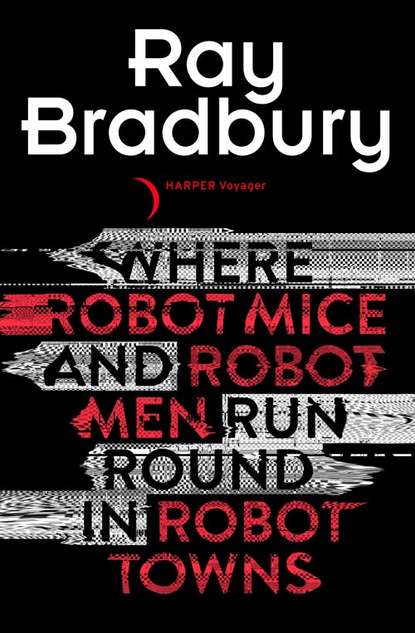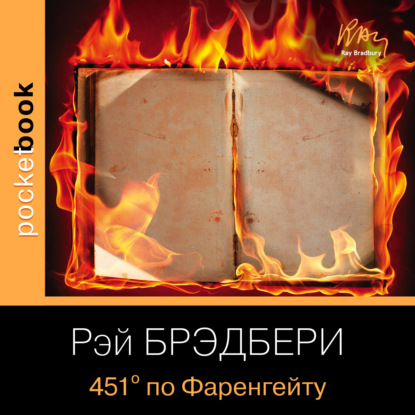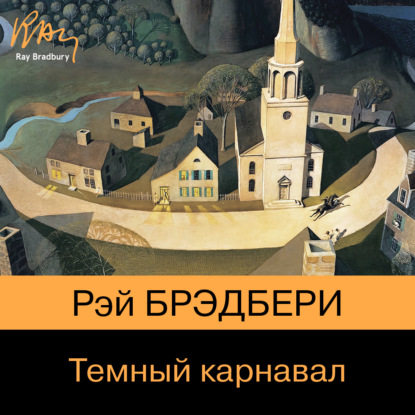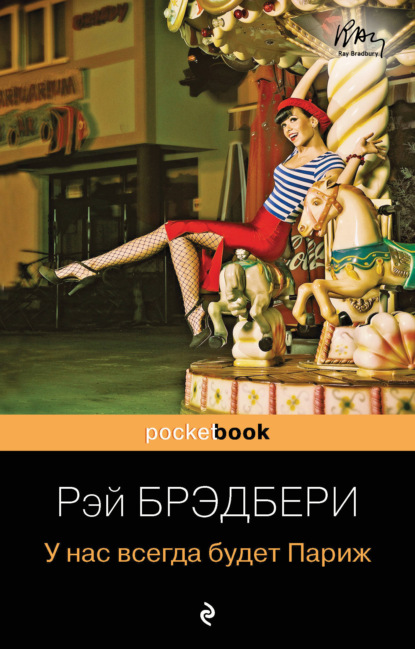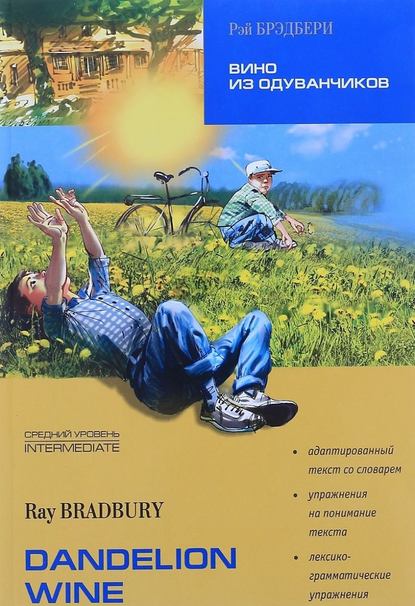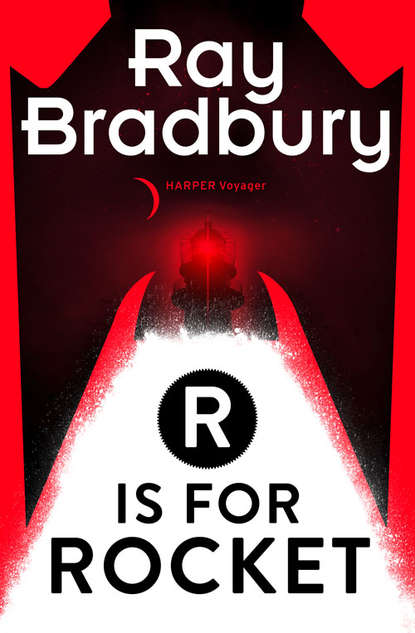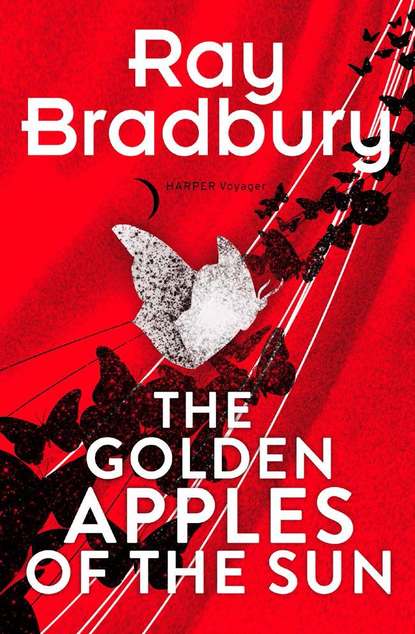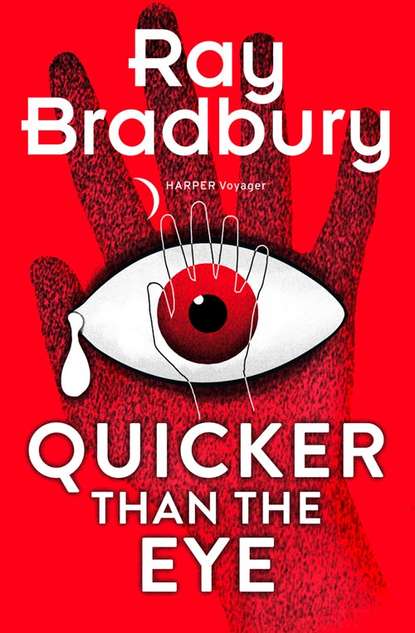
Полная версия
Quicker than the Eye
And before I could prevent, he gave the brass machine a terrific slap with his hand and then a blow and another blow and another, with both fists, cursing. Then he grabbed the periscope as if it were the neck of a spoiled child and throttled and shook it.
I cannot say what I heard in that instant. Perhaps real sounds, perhaps imagined temblors, like a glacier cracking in the spring, or icicles in mid-night. Perhaps it was a sound like a great kite breaking its skeleton in the wind and collapsing in folds of tissue. Maybe I thought I heard a vast breath in-sucked, a cloud dissolving up inside itself. Or did I sense clock machineries spun so wildly they smoked off their foundations and fell like brass snowflakes?
I put my eye to the periscope.
I looked in upon—
Nothing.
It was just a brass tube with some crystal lenses and a view of an empty couch.
No more.
I seized the viewpiece and tried to screw it into some new focus on a far place and some dream bacteria that might fibrillate across an unimaginable horizon.
But the couch remained only a couch, and the wall beyond looked back at me with its great blank face.
Von Seyfertitz leaned forward and a tear ran off the tip of his nose to fall on one rusted fist.
“Are they dead?” he whispered.
“Gone.”
“Good, they deserved to die. Now I can return to some kind of normal, sane world.”
And with each word his voice fell deeper within his throat, his chest, his soul, until it, like the vaporous haunts within the peri-kaleidoscope, melted into silence.
He clenched his fists together in a fierce clasp of prayer, like one who beseeches God to deliver him from plagues. And whether he was once again praying for my death, eyes shut, or whether he simply wished me gone with the visions within the brass device, I could not say.
I only knew that my gossip had done a terrible and irrevocable thing. Me and my wild enthusiasm for a psychological future and the fame of this incredible captain from beneath Nemo’s tidal seas.
“Gone,” murmured Gustav Von Seyfertitz, Baron Woldstein, whispered for the last time. “Gone.”
That was almost the end.
I went around a month later. The landlord reluctantly let me look over the premises, mostly because I hinted that I might be renting.
We stood in the middle of the empty room where I could see the dent marks where the couch had once stood.
I looked up at the ceiling. It was empty.
“What’s wrong?” said the landlord. “Didn’t they fix it so you can’t see? Damn fool Baron made a damn big hole up into the office above. Rented that, too, but never used it for anything I knew of. There was just that big damn hole he left when he went away.”
I sighed with relief.
“Nothing left upstairs?”
“Nothing.”
I looked up at the perfectly blank ceiling.
“Nice job of repair,” I said.
“Thank God,” said the landlord.
What, I often wonder, ever happened to Gustav Von Seyfertitz? Did he move to Vienna, to take up residence, perhaps, in or near dear Sigmund’s very own address? Does he live in Rio, aerating fellow Unterderseaboat Captains who can’t sleep for seasickness, roiling on their waterbeds under the shadow of the Andes Cross? Or is he in South Pasadena, within striking distance of the fruit larder nut farms disguised as film studios?
I cannot guess.
All I know is that some nights in the year, oh, once or twice, in a deep sleep I hear this terrible shout, his cry,
“Dive! Dive! Dive!”
And wake to find myself, sweating, far under my bed.
Zaharoff/Richter Mark V
In the twilight just before sunrise, it was the most ordinary-looking building he had seen since the chicken farm of his youth. It stood in the middle of an empty field full of cricket weeds and cacti, mostly dust and some neglected footpaths in the half darkness.
Charlie Crowe left the Rolls-Royce engine running at the curb behind him and babbled going along the shadowed path, leading the way for Hank Gibson, who glanced back at the gently purring car.
“Shouldn’t you—”
“No, no,” Charlie Crowe cut in. “No one would steal a Rolls-Royce, now, would they? How far would they get, to the next corner? Before someone else stole it from them! Come along!”
“What’s the hurry, we’ve got all morning!”
“That’s what you think, chum. We’ve got—” Charlie Crowe eyed his watch. “Twenty minutes, maybe fifteen for the fast tour, the coming disaster, the revelations, the whole bit!”
“Don’t talk so fast and slow down, you’ll give me a heart attack.”
“Save it for breakfast. Here. Put this in your pocket.”
Hank Gibson looked at the coupon-green diploma.
“Insurance?”
“On your house, as of yesterday.”
“But we don’t need—”
“Yes, you do, but don’t know it. Sign the duplicate. Here. Can you see? Here’s my flashlight and my pen. Thatsa boy. Give one to me. One for you—”
“Christ—”
“No swearing. You’re all protected now, no matter what. Jig time.”
And before he knew it, Hank Gibson was elbow-fetched through a paint-flaked door inside to yet another locked door, which opened when Charlie Crowe pointed his electric laser at it. They stepped into—
“An elevator! What’s an elevator doing in a shack in an empty lot at five in the morning—”
“Hush.”
The floor sank under them and they traveled what might have been seventy or eighty feet straight down to where another door whispered aside and they stepped out into a long hall of a dozen doors on each side with a few dozen pleasantly glowing lights above. Before he could exclaim again, Hank Gibson was hustled past these doors that bore the names of cities and countries.
“Damn,” cried Hank Gibson, “I hate being rushed through one god-awful mystery after another. I’m working on a novel and a feature for my newspaper. I’ve no time—”
“For the biggest story in the world? Bosh! You and I will write it, share the profits! You can’t resist. Calamities. Chaos. Holocausts!”
“You were always great for hyperbole—”
“Quiet. It’s my turn to show and tell.” Charlie Crowe displayed his wristwatch. “We’re wasting time. Where do we start?” He waved at the two dozen shut doors surrounding them with labels marked CONSTANTINOPLE, MEXICO CITY, LIMA, SAN FRANCISCO on one side.
Eighteen ninety-seven, 1914, 1938, 1963 on the other. Also, a special door marked HAUSSMANN, 1870.
“Places and dates, dates and places. How in hell should I know why or how to choose?”
“Don’t these cities and dates ring any bells, stir any dust? Peek here. Glance there. Go on.”
Hank Gibson peeked.
To one side, through a glass window on the topmost part of a door marked 1789, he saw:
“Looks like Paris.”
“Press the button there under the glass.”
Hank Gibson pressed the button.
“Now look!”
Hank Gibson looked.
“My God, Paris. In flames. And there’s the guillotine!”
“Correct. Now. Next door. Next window.”
Hank Gibson moved and peeked.
“Paris again, by God. Do I press the button?”
“Why not?”
He pressed.
“Jesus, it’s still burning. But this time it’s 1870. The Commune?”
“Paris fighting Hessians outside the city, Parisians killing Parisians inside the city. Nothing like the French, eh? Move!”
They reached a third window. Gibson peered.
“Paris. But not burning. There go the taxicabs. I know. Nineteen sixteen. Paris saved by one thousand Paris taxis carrying troops to fend off the Germans outside the city!”
“A-One! Next?”
At a fourth window.
“Paris intact. But over here. Dresden? Berlin? London? All destroyed.”
“Right. How do you like the three-dimension virtual reality? Superb! Enough of cities and war. Across the hall. Go down the line. All those doors with different kinds of devastation.”
“Mexico City? I was there once, in ’46.”
“Press.”
Hank Gibson pressed the button.
The city fell, shook, fell.
“The earthquake of ‘84?”
“Eight-five, to be exact.”
“Christ, those poor people. Bad enough they’re poor. But thousands killed, maimed, made poorer. And the government—”
“Not giving a damn. Move.”
They stopped at a door marked ARMENIA, 1988.
Gibson squinted in, pressed the button.
“Major country, Armenia. Major country—gone.”
“Biggest quake in that territory in half a century.”
They paused at two more windows: TOKYO, 1932, and SAN FRANCISCO, 1905. Both whole, entire, intact at first glance. Touch the button: all fall down!
Gibson turned away, shaken and pale.
“Well?” said his friend Charlie. “What’s the sum?”
Gibson stared along the hall to left and right.
“War and Peace? Or Peace destroying itself without War?”
“Touche!”
“Why are you showing me all this?”
“For your future and mine, untold riches, incredible revelations, amazing truths. Andale. Vamoose!”
Charlie Crowe flashed his laser pen at the largest door at the far end of the hall. The double locks hissed; the door sank away to one side, revealing a large boardroom with a huge table forty feet in length, surrounded by twenty leather chairs on each side and something like a throne, somewhat elevated, at the far end.
“Go sit up at the end,” said Charlie.
Hank Gibson moved slowly.
“Oh, for Christ sake, shake a leg. We’ve only seven more minutes before the end of the world.”
“End—?”
“Just joking. Ready?”
Hank Gibson sat. “Fire away.”
The table, the chairs, and the room shook.
Gibson leaped up.
“What was that?”
“Nothing.” Charlie Crowe checked his watch. “At least not yet. Sit back. What have you seen?”
Gibson settled in his chair uneasily, grasping the arms. “Damned if I know. History?”
“Yes, but what kind?”
“War and Peace. Peace and War. Bad Peace, of course. Earthquakes and fire.”
“Admirable. Now, who’s responsible for all that destruction, two kinds?”
“What, war? Politicians, I guess. Ethnic mobs. Greed. Jealousy. Munitions manufacturers. The Krupp works in Germany. Zaharoff, wasn’t that his name? The big munitions king, the grand mullah of all the warmongers, films of him on the newsreels in cinemas when I was a kid. Zaharoff?”
“Yes! What about the other side of the hall? The earthquakes.”
“God did it.”
“Only God? No helpers?”
“How can anyone help an earthquake?”
“Partially. Indirectly. Collaboratively.”
“An earthquake is an earthquake. A city just happens to be in its way. Underfoot.”
“Wrong, Hank.”
“Wrong!?”
“What if I told you that those cities were not accidentally built there? What if I told you we had planned to build them there, on purpose, to be destroyed?”
“Nuts!”
“No, Hank, creative annihilation. We were up to these tricks as far back as the Tang dynasty earthquakewise on the one hand. Citywise? Paris, 1789 warwise.”
“We? We? Who’s we?”
“Me, Hank, and my cohorts, not in crimson and gold, but good dark cloth and decent ties and fine architectural school graduates. We did it, Hank. We built the cities so as to tear them down. To knock them apart with earthquakes or kill them with bombs and war, war and bombs.”
“We? We!?”
“In this room or rooms like it, all across the world, men sat in those chairs on the left and right, with the grand mucky-muck of all architects there where you sit—”
“Architects!”
“You don’t think all of those earthquakes, all of those wars, happened by mere accident, pure chance? We did it. Hank, the blueprint urban-plan architects of the world. Not the munitions makers or politicians, oh, we used them as puppets, marionettes, useful idiots, but we, the superb hired city architects, set out to build and then destroy our pets, our buildings, our cities!”
“For God’s sake, how insane! Why?”
“Why? So that every forty, fifty, sixty, ninety years we could start over with fresh projects, new concepts, renewed jobs, cash on the line for everyone—blueprinters, planners, craftsmen, builders, stonemasons, diggers, carpenters, glaziers, gardeners. Knock it all down, start new!”
“You mean you—?”
“Studied where the earthquakes hid, where they might erupt, every seam, crack, and fault in every territory, stage, land in the world! That’s where we built the cities! Or most of them.”
“B.S.! You couldn’t do that, you and your planners! People would find out!”
“They never knew or found out. We met in secret, covered our tracks. A small klan, a wee band of conspirators in every country in every age. Like the Masons, eh? Or some Inquisitional Catholic sect? Or an underground Muslim grot. It doesn’t take many or much. And the average politician, dumb or stupid, took our word for it. This is the site, here’s the very place, plant your capital here, your town there. Perfectly safe. Until the next quake, eh, Hank?”
“Poppycock!”
“Watch your language!”
“I refuse to believe—”
The room shook. The chairs trembled. Half out of his chair, Hank Gibson sank back. The color in his face sank, too.
“Two minutes to go,” said Charlie Crowe. “Shall I talk fast? Well, you don’t think the destiny of the world would be left to your ordinary farm-beast politico, do you? Have you ever sat at a Rotary/Lions lunch with those sweet imbecile Chamber of Commerce stallions? Sleep and dreams! Would you let the world jog along with Zaharoff and his gun-maker-powder experts? Hell, no. They only know how to fire steel and package nitro. So our people, the same people who built the cities on the earthquake fault lines to ensure new work to build more cities, we planned the wars, secretly.
“We provoked, guided, steered, influenced the politicians to boil over, one way or t’other, and Paris and the Terror followed, dogged by Napoleon, trailed by the Paris Commune in which Haussmann, taking advantage of the chaos, tore down and rebuilt the City to the madness of some, delight of others. Consider Dresden, London, Tokyo, Hiroshima. We architects paid cold cash to get Hitler out of jail in 1922! Then we architects mosquito-pestered the Japanese to invade Manchuria, import junk iron, antagonize Roosevelt, bomb Pearl Harbor. Sure, the Emperor approved, sure the Generals knew delight, sure the kamikazes took off for oblivion, joyously happy. But behind the scenes, we architects, clapping hands, rubbing palms for the moola, shoved them up! Not the politicians, not the military, not the arms merchants, but the sons of Haussmann and the future sons of Frank Lloyd Wright sent them on their way. Glory hallelujah!”
Hank Gibson exhaled a great gust and sat, weighted with an ounce of information and a ton of confusion, at the head of this table. He stared down its length.
“There were meetings here—”
“In 1932, 1936, 1939 to fester Tokyo, poison Washington for war. And at the same time make sure that San Francisco was built in the best way for a new downfall, and that California cities all up and down the cracks and seams nursed at the mother fault, San Andreas, so when the Big One came, it would rain money for forty days.”
“Son of a bitch,” said Hank Gibson.
“Yes, aren’t I? Aren’t we?”
“Son of a bitch,” Hank Gibson repeated in a whisper. “Man’s wars and God’s earthquakes.”
“What a collaboration, eh? All done by the secret government, the government of surprise architects across the world and into the next century.”
The floor shook. The table and the chair and the ceiling did likewise.
“Time?” said Hank Gibson.
Charlie Crowe laughed, glancing at his watch.
“Time. Out!”
They ran for the door, ran down the hall past the doors marked TOKYO and LONDON and DRESDEN, past the doors marked 1789 and 1870 and 1940 and past the doors marked ARMENIA and MEXICO CITY and SAN FRANCISCO and shot up in the elevator, and along the way, Hank Gibson said:
“Again, why’ve you told me this?”
“I’m retiring. The others are gone. We won’t use this place again. It’ll be gone. Maybe now. You write the book about all this fabulous stuff, I edit it, we’ll grab the money and run.”
“But who’ll believe it!?”
“No one. But it’s so sensational, everyone will buy. Millions of copies. And no one will investigate, for they’re all guilty, city fathers, Chambers of Commerce, real estate salesmen, Army generals who thought they made up and fought their own wars, or made up and built their own cities! Pompous freaks! Here we are. Out.”
They made it out of the elevator and the shack as the next quake came. Both fell and got up, with nervous laughter.
“Good old California, yes? Is my Rolls still there? Yep. No carjackers. In!”
With his hand on the Rolls doorframe, Gibson stared over at his friend. “Does the San Andreas Fault come through this block?”
“You better believe. Wanna go see your home?”
Gibson shut his eyes. “Christ, I’m afraid.”
“Take courage from the insurance policy in your coat pocket. Shall we go?”
“In a moment.” Gibson swallowed hard. “What will we name our book?”
“What time is it and date?”
Gibson looked at the sun about to rise. “Early. Six-thirty. And the date on my watch reads February fifth.”
“Nineteen ninety-four?”
“Six-thirty a.m. February fifth, 1994.”
“Then that’s the title of our book. Or why not Zaharoff, add Richter for the earthquake Richter scale at Cal-Tech. Zaharoff/Richter Mark V? Okay?”
“Okay.”
The doors slammed. The motor roared.
“Do we go home?”
“Go fast. Jesus. Fast.”
They went.
Fast.
Remember Sascha?
Remember? Why, how could they forget? Although they knew him for only a little while, years later his name would arise and they would smile or even laugh and reach out to hold hands, remembering.
Sascha. What a tender, witty comrade, what a sly, hidden individual, what a child of talent; teller of tales, bon vivant, late-night companion, ever-present illumination on foggy noons.
Sascha!
He, whom they had never seen, to whom they spoke often at three a.m. in their small bedroom, away from friends who might roll their eyeballs under their lids, doubting their sanity, hearing his name.
Well, then, who and what was Sascha, and where did they meet or perhaps only dream him, and who were they?
Quickly: they were Maggie and Douglas Spaulding and they lived by the loud sea and the warm sand and the rickety bridges over the almost dead canals of Venice, California. Though lacking money in the bank or Goodwill furniture in their tiny two-room apartment, they were incredibly happy. He was a writer, and she worked to support him while he finished the great American novel.
Their routine was: she would arrive home each night from downtown Los Angeles and he would have hamburgers waiting or they would walk down the beach to eat hot dogs, spend ten or twenty cents in the Penny Arcade, go home, make love, go to sleep, and repeat the whole wondrous routine the next night: hot dogs, Penny Arcade, love, sleep, work, etc. It was all glorious in that year of being very young and in love; therefore it would go on forever …
Until he appeared.
The nameless one. For then he had no name. He had threatened to arrive a few months after their marriage to destroy their economy and scare off the novel, but then he had melted away, leaving only his echo of a threat.
But now the true collision loomed.
One night over a ham omelet with a bottle of cheap red and the conversation loping quietly, leaning on the card table and promising each other grander and more ebullient futures, Maggie suddenly said, “I feel faint.”
“What?” said Douglas Spaulding.
“I’ve felt funny all day. And I was sick, a little bit, this morning.”
“Oh, my God.” He rose and came around the card table and took her head in his hands and pressed her brow against his side, and looked down at the beautiful part in her hair, suddenly smiling.
“Well, now,” he said, “don’t tell me that Sascha is back?”
“Sascha! Who’s that?”
“When he arrives, he’ll tell us.”
“Where did that name come from?”
“Don’t know. It’s been in my mind all year.”
“Sascha?” She pressed his hands to her cheeks, laughing. “Sascha!”
“Call the doctor tomorrow,” he said.
“The doctor says Sascha has moved in for light housekeeping,” she said over the phone the next day.
“Great!” He stopped. “I guess.” He considered their bank deposits. “No. First thoughts count. Great! When do we meet the Martian invader?”
“October. He’s infinitesimal now, tiny, I can barely hear his voice. But now that he has a name, I hear it. He promises to grow, if we take care.”
“The Fabulous Invalid! Shall I stock up on carrots, spinach, broccoli for what date?”
“Halloween.”
“Impossible!”
“True!”
“People will claim we planned him and my vampire book to arrive that week, things that go bump and cry in the night.”
“Oh, Sascha will surely do that! Happy?”
“Frightened, yes, but happy, Lord, yes. Come home, Mrs. Rabbit, and bring him along!”
It must be explained that Maggie and Douglas Spaulding were best described as crazed romantics. Long before the interior christening of Sascha, they, loving Laurel and Hardy, had called each other Stan and Ollie. The machines, the dustbusters and can openers around the apartment, had names, as did various parts of their anatomy, revealed to no one.
So Sascha, as an entity, a presence growing toward friendship, was not unusual. And when he actually began to speak up, they were not surprised. The gentle demands of their marriage, with love as currency instead of cash, made it inevitable.
Someday, they said, if they owned a car, it too would be named.
They spoke on that and a dozen score of things late at night. When hyperventilating about life, they propped themselves up on their pillows as if the future might happen right now. They waited, anticipating, in seance, for the silent small off-spring to speak his first words before dawn.
“I love our lives,” said Maggie, lying there, “all the games. I hope it never stops. You’re not like other men, who drink beer and talk poker. Dear God, I wonder, how many other marriages play like us?”
“No one, nowhere. Remember?”
“What?”
He lay back to trace his memory on the ceiling.
“The day we were married—”
“Yes!”
“Our friends driving and dropping us off here and we walked down to the drugstore by the pier and bought a tube of toothpaste and two toothbrushes, big bucks, for our honeymoon …? One red toothbrush, one green, to decorate our empty bathroom. And on the way back along the beach, holding hands, suddenly, behind us, two little girls and a boy followed us and sang:
“Happy marriage day to you,
Happy marriage day to you.
Happy marriage day, happy marriage day,
Happy marriage day to you …”
She sang it now, quietly. He chimed in, remembering how they had blushed with pleasure at the children’s voices, but walked on, feeling ridiculous but happy and wonderful.
“How did they guess? Did we look married?”
“It wasn’t our clothes! Our faces, don’t you think? Smiles that made our jaws ache. We were exploding. They got the concussion.”
“Those dear children. I can still hear their voices.”
“And so here we are, seventeen months later.” He put his arm around her and gazed at their future on the dark ceiling.
‘“And here I am,” a voice murmured.
“Who?” Douglas said.
“Me,” the voice whispered. “Sascha.”
Douglas looked down at his wife’s mouth, which had barely trembled.



